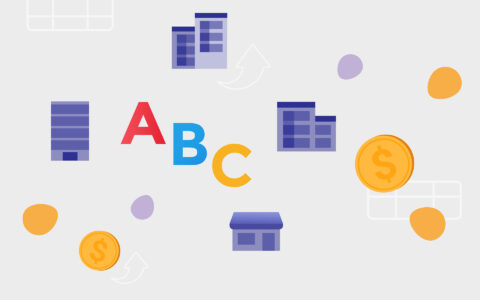Have you ever gotten lost in all the data while reviewing your PPC campaigns in Google Ads? You’re not alone! Many marketers struggle with this. And even after hours of analysis, they aren’t much wiser. Thanks to this article, you’ll be able to identify what KPIs you should keep an eye on.
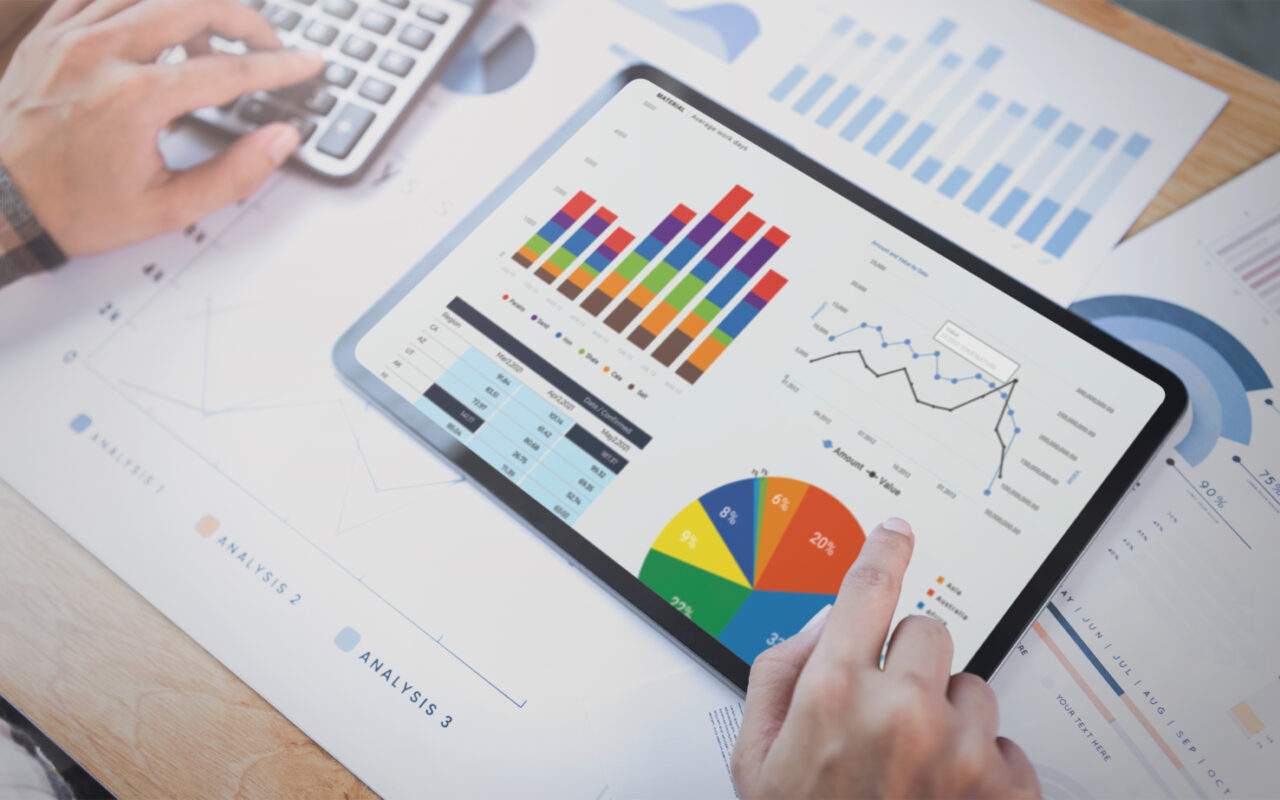
To get the best results from your PPC campaigns, you need to watch the right KPIs in Google Ads. Focus on important metrics like Click-Through Rate (CTR), Conversion Rate, and Cost Per Conversion (CPC). This way, you can boost your Google Ads ROI and stop wasting time and money on ads that don’t work.
When you understand these metrics, you can fine-tune your strategy to reach the right people and get real results.
Table of contents:
Why Is It So Important to Track the Right KPIs in Google Ads
KPIs You Should Keep an Eye on
I Don't See the Metrics
How to Save Time When Reviewing My PPC Campaigns?
At the End of the Day, You Should Focus Only on What Matters
Why Is It So Important to Track the Right KPIs in Google Ads
Tracking the right KPIs will help you to evaluate your PPC campaigns. And make edits accordingly.
Focus on those metrics that identify what works for you and what doesn’t. Thanks to this, you’ll prevent wasting money and time on campaigns that aren't as effective. Only then will you be able to get to the most important phase - campaign optimization.
KPIs You Should Keep an Eye on
CR (Conversion Rate)
- What is it: Percentage of visitors who converted (ordered your product, signed up).
- Why is it important: Conversion rate will show you how effective your campaign is when it comes to transitioning your visitors into customers. If you have a low conversion rate, it means your ads aren’t convincing enough. Or that your landing page doesn’t serve its purpose.
- Where to find it: In the tab Campaigns under conversion rate.
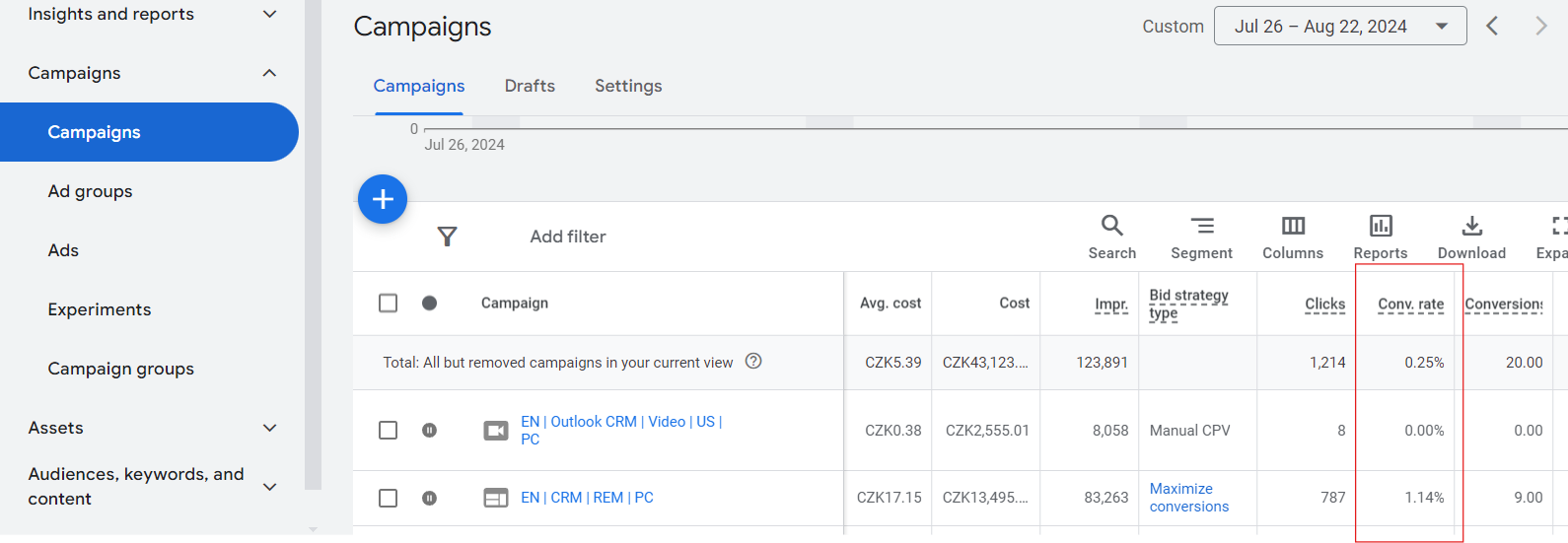
- How to get higher numbers in CR: Optimize your landing pages (by improving their speed, and UX) and test various types of ads (often, it’s best to create a clear and attractive call-to-action). Also, consider adjusting your ads to your target market needs.
CPC (Cost per Conversion)
- What is it: Average price you pay for each conversion.
- Why is it important: It helps you to see whether you work with your budget effectively. If the cost is high, it means your campaign isn’t optimized ideally. And you spend a lot of bucks for not that much of a bang.
- Where to find it: In the tab Campaigns under Cost / conv.

- How to lower CPC: Test your ads and optimize them according to the results you get when using certain keywords. If a change of keywords in certain campaign doesn’t help, reallocate your budget to the ads that have a low cost per conversion (CPC).
CTR (Click-Through Rate)
- What is it: A percentage of people who clicked on an ad after they saw it online.
- Why is it important: CTR will tell you how attractive and relevant your ads are in the search results. Low CTR means your ad isn't that appealing to users. And high CTR means it's successful.
- Where to find it: In the tab Campaigns under CTR.
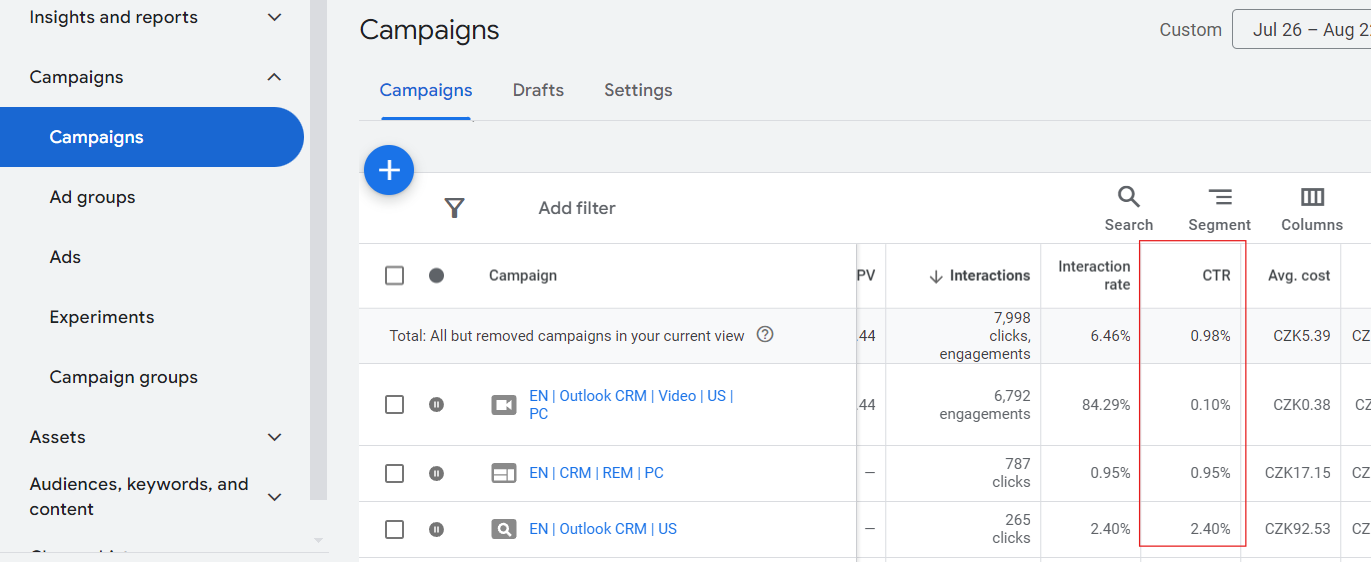
- How to get higher CTR: Refine your texts to perfection. The goal is to make as many users as possible to click on your website (ad).
ROAS (Return on Ad Spend)
- What is it: The ratio between revenue and advertising costs.
- Why is it important: ROAS will tell you whether your investment in an ad is worth it. High ROAS means every dollar you put into an ad multiplies. And the low one means the opposite = is not successful.
- Where to find it: To get the result, you need to calculate the ratio between total revenue and total advertising costs on an ad.
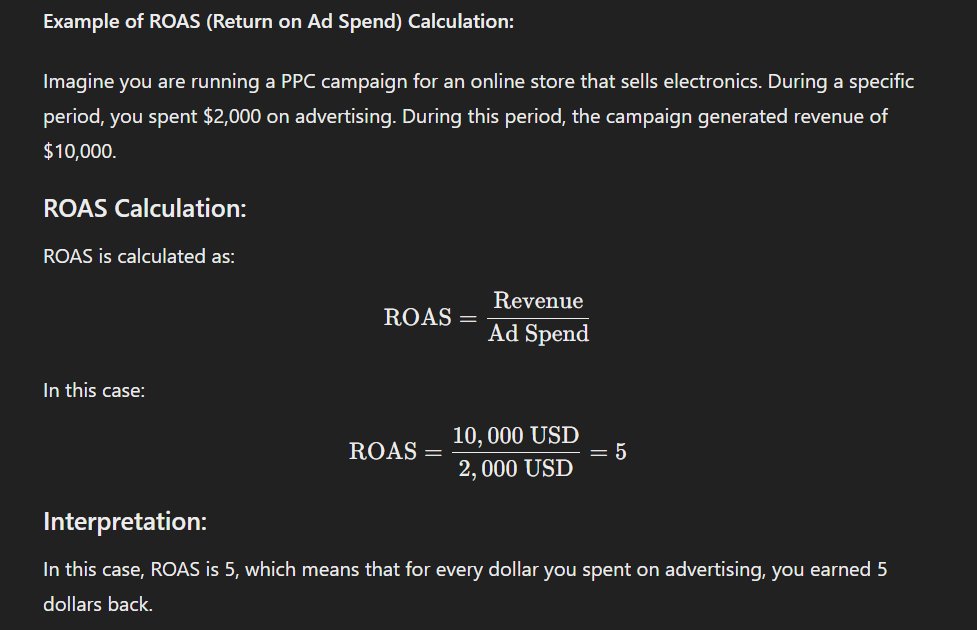
- How to improve ROAS: Focus only on campaigns with high returns. Optimize your budget for the best-performing ads and analyze how different pages affect your ROAS.
Optimization Score
- What is it: The optimization score estimates the performance of a campaign on a scale from 0-100%. 100% means the campaign is used to its full potential. You can find your optimization score in the tab Campaigns, your account, or the administrator’s account.
- Why is it important: The optimization score and recommendations focus directly on your business goals, like increasing conversion value or getting more conversions. These appear in your account or campaign only when they can truly help you achieve those goals.
- Where to find it: In the tab Campaigns under Optimization score.
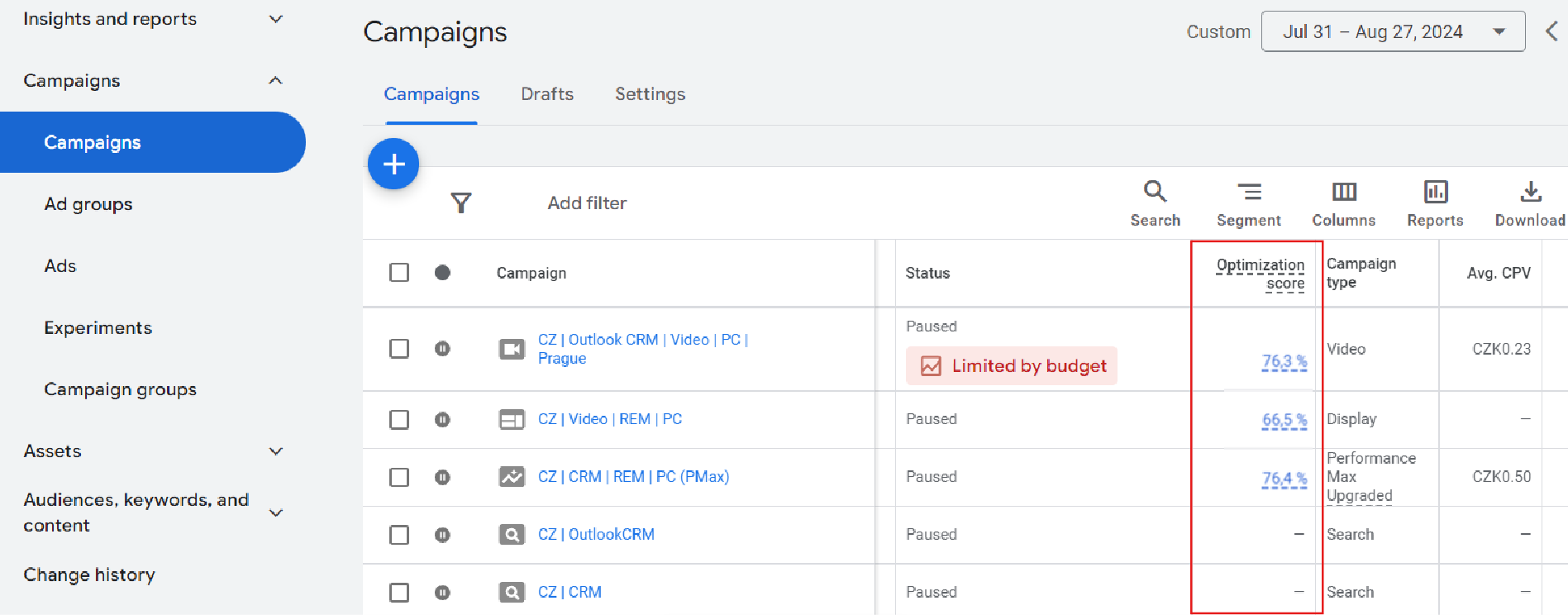
- How to improve your optimization score: Make sure your keywords are relevant to the content of your ads and landing pages. Improve the speed of your landing pages as well as their UX and make sure your ads are fitting.
A huge plus is that Google Ads will give you recommendations, too. How does it know what you should do? Google Ads works with your data and Google’s models for future predictions. Therefore, it's able to tell you what steps you should consider taking to reach success.
I Don't See the Metrics
You might not see the metrics in the list of your campaigns. In that case, simply add them via Columns.
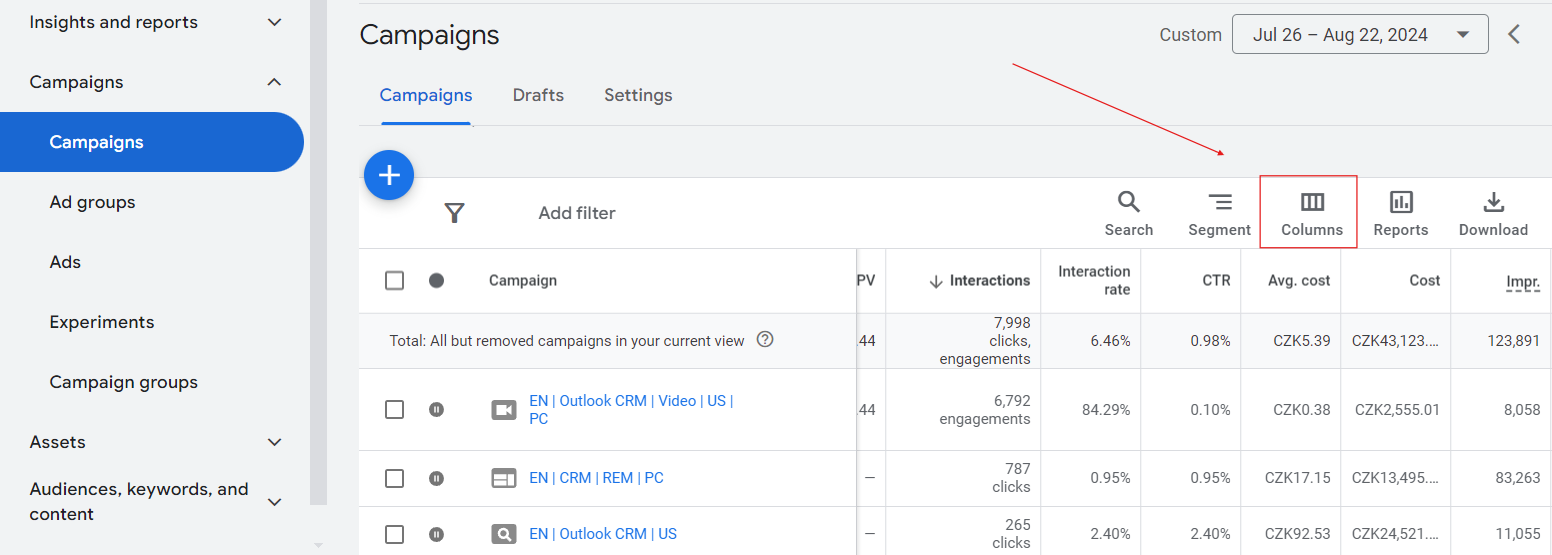
How to Save Time When Reviewing My PPC Campaigns?
- Set goals: Before starting an analysis, make sure you set your goals. Do you want to sell more, lower the costs per conversion (CPC), or get a better click-through rate (CTR)? Thanks to clear goals, you will be able to focus on the right KPIs.
- Make regular revisions and optimize: Reviewing your performance is not a one-time thing. Make regular revisions of your campaigns (weekly, monthly), experiment with new strategies and optimize.
- Do A/B testing: Not all your moves will be successful in the end. Test different types of ads, keywords, and sizes of budget. Only then will you be able to find out what works best for you.
The rule one size fits all can’t be applied here. Because what works for others might not work for you at all.
At the End of the Day, You Should Focus Only on What Matters
It’s easy to have your head in the clouds with all the accessible data. But in the end, you have to focus only on what matters.
This guide tells you what are the most important KPIs in Google Ads, so you can fine-tune your PPC campaigns.
Forget about the general advice. It isn’t of any use here. Instead, focus on specific steps and strategies thanks to which you'll be able to reach your goals. The difficult part... you'll have to figure these out yourself. But it's worth it because they'll allow you to maximize the ratio between revenue and advertising costs. And not only in Google ADs.
Again, keep in mind that the quantity of your data isn’t what makes your campaigns successful. It’s all about how you can leverage the data.
The last thing... I have to admit that the Google campaign management is a full-time job.







